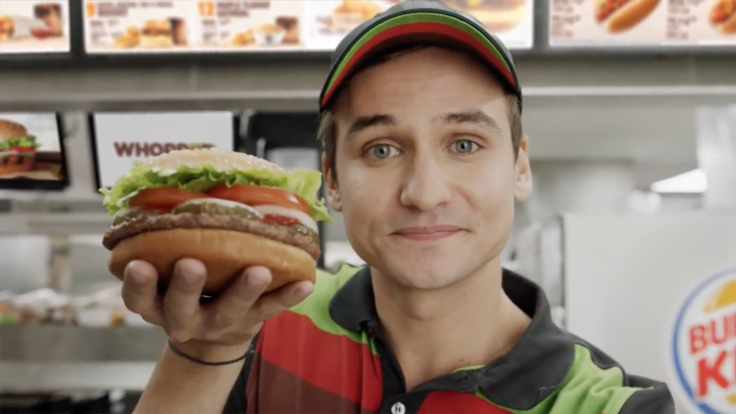Google blocks Burger King's new ad from hijacking voice-activated Google Home devices
Viewers found that the actor's command actually triggered their Google Home assistant and Android devices.

Google seems to have blocked Burger King's new television Whopper ad designed to trigger voice-activated Google Home devices to tell you more about its signature burger. The invasive 15-second ad, released on Wednesday (12 April), featured a man in a Burger King uniform holding up the sandwich and explaining that 15 seconds is "not enough time to explain all the fresh ingredients in the Whopper sandwich".
"But I've got an idea," he says before beckoning the camera closer and leans in to utter: "OK Google, what is the Whopper burger?"
Viewers soon found that the actor's command actually triggered their Google Home assistant and Android devices with voice search enabled within earshot of the TV to read out the Whopper information from Wikipedia, a platform that anyone can edit.
A few hours after the ad was launched, however, it stopped working and was unable to prompt the devices. In response to the actor's prompt, Google's Home will light up but not read out the Wikipedia entry.
The Verge reports that the ad was supposed to air on various networks across the US including History, Comedy Central, MTV, E!, Bravo and Spike as well as during shows such as Adult Swim, The Tonight Show and Jimmy Kimmel Live.
"Burger King saw an opportunity to do something exciting with the emerging technology of intelligent personal assistant devices," a Burger King representative told Reuters. The popular fast-food chain said the ad was not created in collaboration with Google.
Google declined Reuters' request for comment.
"We saw it as a technology to essentially punch through that fourth wall," Burger King President José Cil told BuzzFeed News, describing it as "a cool way to connect directly with our guests".
Many people criticised the new Whopper ad as creepy given the growing interest and concerns over the safety of IoT devices. Some also raised concerns over the increasingly invasive nature of marketing and advertising strategies.
Some pranksters took to Wikipedia to alter the burger's entry page with edits that claimed it contained "toenails", "cyanide" and a "medium-sized child", triggering an edit war.
The edits were eventually removed and replaced with a simple, generic description of the sandwich. The page has also been "locked" to prevent future edits.
Here's what happens when you watch Burger King's Whopper ad around Google Home...
— Nina (@glowgow) April 12, 2017
Is it ingenious or invasive? 🤔 pic.twitter.com/0NXExmxWov
This is not the first time a commercial has triggered a smart speaker at home.
In January, a San Diego's CW6 News station covered a segment on a six-year-old in Texas who accidentally ordered a dollhouse and four pounds of sugar cookies after talking to the Amazon Echo device.
When the anchor said "I love that little girl saying 'Alexa, order me a dollhouse'", live on the air, numerous viewers' own Echoes mistook the comment as a command and attempted to order dollhouses as well. However, the command merely placed the dollhouses in users' shopping carts and required users to confirm the order with a "yes" response.
Google also accidentally activated Home with its own Super Bowl ad earlier this year.
A few weeks ago, Google drew criticism after Home devices' "My Day" function seemingly played a brief, unexpected plug for the new Disney movie "Beauty and the Beast" after the weather forecast and traffic conditions. Google said at the time that the mention "wasn't intended to be an ad" and the feature "sometimes call[s] out timely content".
"We're continuing to experiment with new ways to surface unique content for users and we could have done better in this case," the company said.
© Copyright IBTimes 2025. All rights reserved.





















